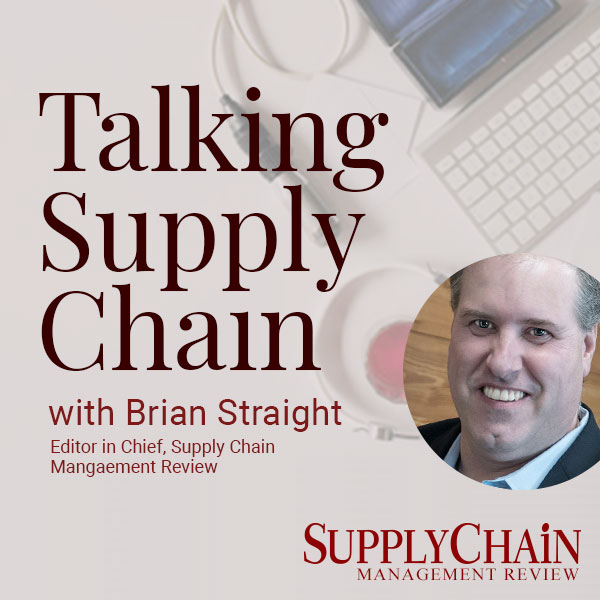Sorry, but your login has failed. Please recheck your login information and resubmit. If your subscription has expired, renew here.
September-October 2018
If it’s September, it must be time for Gartner’sTop 25 supply chains, the lead article in this issue of Supply Chain Management Review. As I was reading this year’s contribution from Gartner, I was struck by the number of the Top 25 that have launched NextGen Supply Chain initiatives, using Big Data, artificial intelligence (AI), robotic process automation (RPA), machine learning and the like to digitize their supply chains. It made me wonder: Is the rest of the pack falling behind or are they ready to follow the leaders? Browse this issue archive.Need Help? Contact customer service 847-559-7581 More options
As the digitalization of supply chains progresses, how can small, less technically-sophisticated enterprises leverage the technology? The challenge is especially apparent in the agricultural industry, where resource-poor, small-scale growers in emerging economies remain tied to traditional practices.
Yet without their participation, the digitalization of agricultural supply chains can’t reach its full potential. The Center for Latin America Logistics Innovation (CLI), a member of the MIT Global SCALE (Supply Chain and Logistics Excellence) Network, is leading an initiative in Colombia that offers one approach to the challenge.
In addition to helping smallholder farmers access world markets and improve their logistics skills, the project represents a first step in introducing these growers to more advanced supply chain and logistics practices.
Market connections
The CLI project is part of a broader pilot that also involves LOGYCA/ASOCIACIÓN, the representative in Colombia of GS1 standards. Initially eight countries were involved in the pilot, including Colombia, the only country from Latin America, but the pilot is now open to all countries.

This complete article is available to subscribers only.
Log in now for full access or start your PLUS+ subscription for instant access.
SC
MR
Sorry, but your login has failed. Please recheck your login information and resubmit. If your subscription has expired, renew here.
September-October 2018
If it’s September, it must be time for Gartner’sTop 25 supply chains, the lead article in this issue of Supply Chain Management Review. As I was reading this year’s contribution from Gartner, I was struck by the… Browse this issue archive. Access your online digital edition. Download a PDF file of the September-October 2018 issue.As the digitalization of supply chains progresses, how can small, less technically-sophisticated enterprises leverage the technology? The challenge is especially apparent in the agricultural industry, where resource-poor, small-scale growers in emerging economies remain tied to traditional practices.
Yet without their participation, the digitalization of agricultural supply chains can't reach its full potential. The Center for Latin America Logistics Innovation (CLI), a member of the MIT Global SCALE (Supply Chain and Logistics Excellence) Network, is leading an initiative in Colombia that offers one approach to the challenge.
In addition to helping smallholder farmers access world markets and improve their logistics skills, the project represents a first step in introducing these growers to more advanced supply chain and logistics practices.
Market connections
The CLI project is part of a broader pilot that also involves LOGYCA/ASOCIACIÓN, the representative in Colombia of GS1 standards. Initially eight countries were involved in the pilot, including Colombia, the only country from Latin America, but the pilot is now open to all countries.
 SUBSCRIBERS: Click here to download PDF of the full article.
SUBSCRIBERS: Click here to download PDF of the full article.
SC
MR


Latest Supply Chain News
- Technology’s role in mending supply chain fragility after recent disruptions
- Tech investments bring revenue increases, survey finds
- Survey reveals strategies for addressing supply chain, logistics labor shortages
- Israel, Ukraine aid package to increase pressure on aerospace and defense supply chains
- How CPG brands can deliver on supplier diversity promises
- More News
Latest Podcast

 Explore
Explore
Software & Technology News
- Technology’s role in mending supply chain fragility after recent disruptions
- Tech investments bring revenue increases, survey finds
- Survey reveals strategies for addressing supply chain, logistics labor shortages
- AI, virtual reality is bringing experiential learning into the modern age
- Humanoid robots’ place in an intralogistics smart robot strategy
- Tips for CIOs to overcome technology talent acquisition troubles
- More Software & Technology
Latest Software & Technology Resources

Subscribe

Supply Chain Management Review delivers the best industry content.

Editors’ Picks





